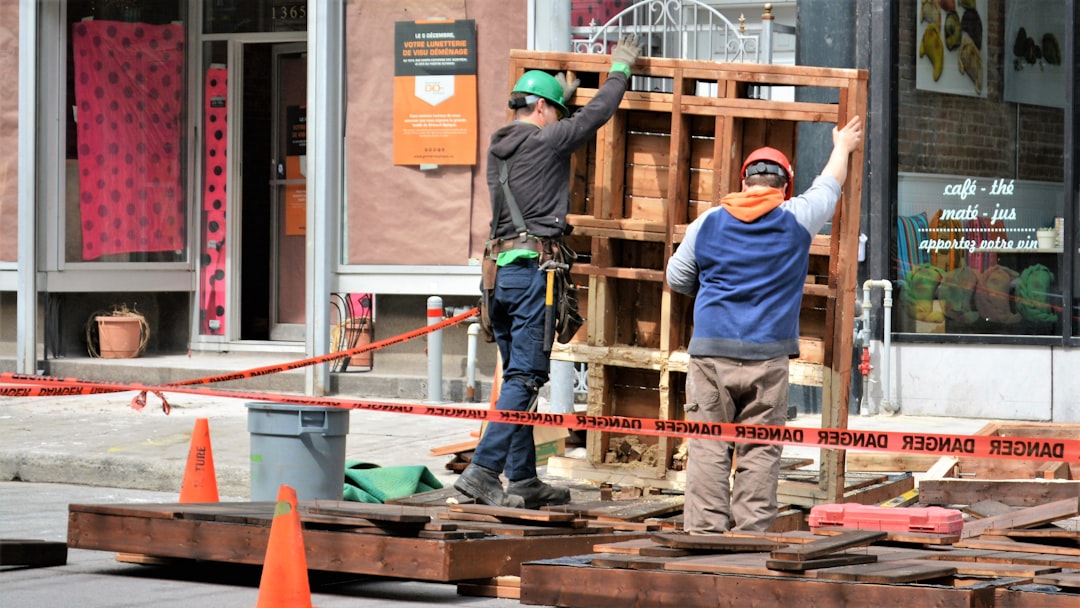CountBricks: Outdoor Wood Boilers for Boston Professionals
Boston Construction Cost Hub
Price source: Costs shown are derived from our proprietary U.S. construction cost database (updated continuously from contractor/bid/pricing inputs and normalization rules).
Eva Steinmetzer-Shaw
Head of Marketing
Outdoor Wood Boilers in Boston: A Smart Move for Professionals
Outdoor wood boilers offer a sustainable heating solution for Boston's harsh winters. With installation costs ranging from $9,000–$16,000, these systems provide a renewable alternative to traditional heating methods. CountBricks combines AI technology with industry expertise to assist construction professionals in evaluating and installing these systems efficiently.
Benefits of Outdoor Wood Boilers for Trade Professionals
- Reduce heating costs by utilizing locally sourced cordwood or wood pellets.
- Keep combustion outside, minimizing indoor pollutants.
- Integrate with existing hydronic, radiant, or forced-air systems.
- Support regional forestry and reduce carbon footprint.
Boston-Specific Considerations
Boston's regulations on setback distances and chimney heights are crucial. CountBricks ensures compliance with local amendments, preventing costly redesigns.
Climate Impacts
- Coastal humidity accelerates corrosion; stainless or ceramic-lined boilers are recommended.
- Freeze-thaw cycles require robust concrete pads; 4,000-psi concrete with rebar is specified.
- Heavy snowfall necessitates clear access paths; snow-melt zones are available.
How CountBricks Streamlines Your Project
Instant Material Libraries
Access live pricing on boilers and materials from Massachusetts suppliers.
AI-Driven Labor Mapping
Benchmark labor rates from local trade partners.
Blueprint Takeoffs in Seconds
Upload surveys or photos for automatic analysis.
Permitting Workflow
Auto-generate permit packages aligned with Boston's requirements.
Cost Breakdown for an Outdoor Wood Boiler in Boston
- Boiler unit (150,000-200,000 BTU): $7,000–$12,000
- Insulated underground piping: $5–$8 per linear foot
- Concrete pad and enclosure: $2,000–$3,000
- System integration: $1,500–$4,500
- Permits and inspections: $300–$1,000
- Average turnkey price: $9,000–$16,000
Getting an Accurate AI Estimate in Minutes
- Visit CountBricks.com and select “Outdoor Wood Boiler.”
- Describe your project to our voice AI.
- Receive a dynamic bill of materials and a shareable PDF quote.
Five Pro Tips for Maximizing Efficiency
- Season firewood for optimal BTU output.
- Install a thermostatic mixing valve.
- Add a domestic hot-water coil.
- Schedule annual water chemistry tests.
- Consider a solar-powered circulation pump.
Case Snapshot: The Dorchester Retrofit
The O’Connor family transitioned from oil to a 170,000-BTU outdoor boiler, achieving a 4.2-year payback. CountBricks managed the project from permits to inspection.
Ready to Explore Your Options?
CountBricks is your partner for heating upgrades. Explore options at CountBricks.com.
Deep Dive: Installation Timeline & CountBricks Quality Controls
Boston's construction schedule is tight. CountBricks uses predictive scheduling to ensure timely project completion.
Projected 10-Day Outdoor Wood Boiler Schedule
- Day 1: Site scan and homeowner orientation
- Day 2-3: Trench excavation and concrete pad pour
- Day 4: Boiler setup and plumbing
- Day 5: Electrical and sensor installation
- Day 6: System integration and pressure testing
- Day 7: Boiler commissioning and homeowner training
- Day 8-9: Inspections and emissions verification
- Day 10: Final walkthrough and manual turnover
CountBricks Quality Assurance Checkpoints
- Weld inspections for porosity
- Glycol mix testing
- Combustion analysis for emissions
- Thermal imaging for heat loss
Post-Installation Support
Access project files and receive seasonal reminders through CountBricks.com. Partner suppliers provide real-time pricing updates.
Choose CountBricks for AI precision and craftsmanship. Schedule your call at CountBricks.com.

